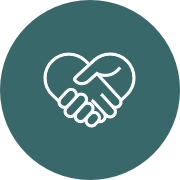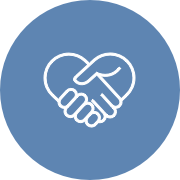About New Start II
RHD founded New Start II in 1999 to provide intensive drug and alcohol treatment in addition to mental health support services.
“RHD New Start II is designed around mental health and addiction recovery, and serves individuals who are chronically homeless,” said program director Tajuana Evans. “We are a project under the umbrella of the Philadelphia initiative to get the chronically homeless off the streets and into stable housing. “We meet people where they are. Everybody’s treatment is individualized and person-centered.”
At RHD, we know people need more than a referral. RHD’s philosophy of care coordination meets the needs of program participants in a recovery-oriented environment dedicated to healing, wellness and choice.
“Because our individuals are chronically homeless, we provide them with supports that are well-rounded,” Evans said. “In addition to the clinical aspect of drug and alcohol treatment, we provide life skills or many different levels. We have nursing staff here to offer support with health issues, along with a drug and alcohol coordinator that provides them with budgeting, getting reconnected with community-based activities, and getting reconnected with community support.
“We help people engage in sober activities. We go out on outings very often and we go to different types of events, and different social settings — amusement parks, bowling, things like that. We introduce people to things that they have not been acclimated to, or may have been unable to experience due to addiction or homelessness. We try to show people that being sober can be fun.”
RHD New Start II recognizes there isn’t a one-size-fits-all approach to addiction recovery, and offers a variety of innovative person-centered and person-directed recovery plans that take into account where our clients are in their unique stages of readiness to begin their recovery process.
“We make our participants feel comfortable and feel like they are at home,” Evans said. “We provide the services that are going to help them be as successful as they can when they leave the program and integrate back in the community. We provide them the tools necessary to sustain and to be successful in their ongoing journey. That is always our goal.”



